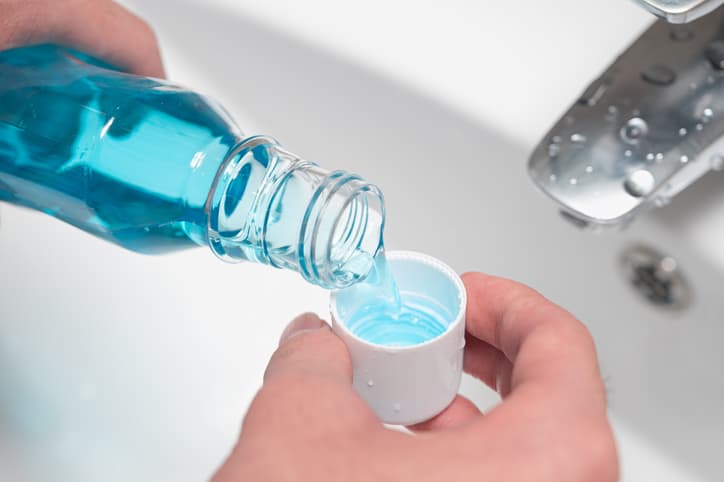 If you experience dry mouth, you might want to use a saliva substitute as a replacement for your natural saliva. This artificial substitute isn’t a perfect match for the saliva your body makes, according to the American Dental Association (ADA), but it does help temporarily relieve dry mouth symptoms.
If you experience dry mouth, you might want to use a saliva substitute as a replacement for your natural saliva. This artificial substitute isn’t a perfect match for the saliva your body makes, according to the American Dental Association (ADA), but it does help temporarily relieve dry mouth symptoms.
Why Use Artificial Saliva?
In addition to the annoying feeling of a dry mouth, this condition can create other problems. The ADA details how dryness irritates tissues in the mouth and promotes the growth of bacteria. As a result, dry mouth can lead to increased tooth decay and gum disease, inflammation that can cause infection and bad breath. Plus, when your mouth is moist, it’s easier to speak, chew and swallow. Saliva is also involved in the first step of digesting food, so a lack of saliva can interfere with good digestion.
Saliva substitute is usually available as a spray, a solution that you swab or swish in the mouth, a gel and in lozenges. You typically don’t need a prescription for most artificial saliva products (though some are available only by prescription), but sometimes they are hard to find on store shelves, so ask your pharmacist.
You may need to try a few different products to find the one that works best for you. Be sure to speak with your dentist or dental hygienist as well, as they may be able to offer you samples of some products for you to trial.
Saliva Substitute vs. Saliva Stimulant
A saliva substitute replaces natural saliva. In contrast, a saliva stimulant increases the natural production of saliva. The most efficient way to stimulate salivary flow is chewing, according to the ADA, because it causes muscles to compress the salivary glands and release saliva; that’s why chewing your food well is so important. Chewing gum may help increase saliva production, but note that the ADA recommends sugarless brands.
Oral Hygiene for Dry Mouth
When you have dry mouth, good oral hygiene is even more important in order to help remove bacteria that can cause tooth decay and gum disease. Brush and floss on a regular schedule, and use peroxide-free and alcohol-free mouthwashes, to avoid drying out your mouth.
